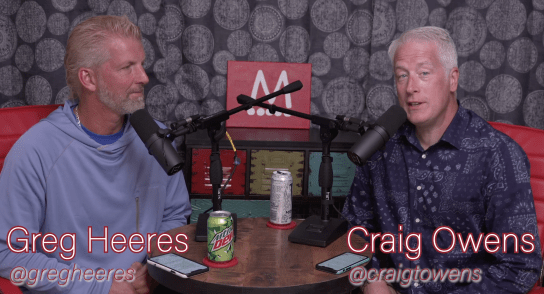
John Maxwell makes it clear in this quote that leaders are to focus on the other person: “Lead according to their dream. Coach according to their weakness. Mentor according to their potential. Delegate according to their strengths. Relate according to their personality.” —John Maxwell
In my ongoing Monday Motivation video series, I shared one of my favorite Bible verses about mentoring:
A very interesting mini-biography of Alexander Hamilton: American Prodigal—The Rise, Fall, and Redemption of Alexander Hamilton.
“…One of my favorite analogies of prayer is a wartime walkie-talkie. I like to contrast the wartime walkie-talkie of prayer with the domestic intercom. What I like to say is that one of the reasons prayer malfunctions is because people take a wartime walkie-talkie and try to turn it into a domestic intercom, in which they ring up the butler to please bring another pillow to the den.
“Prayer is not designed as an intercom between us and God to serve the domestic comforts of the saints. It’s designed as a walkie-talkie for spiritual battlefields. It’s the link between active soldiers and their command headquarters, with its unlimited fire-power and air cover and strategic wisdom. When you understand this, you can pray the locks off people’s hearts.” —John Piper
“I do not think that there is any other quality so essential to success of any kind as the quality of perseverance.” —John D. Rockefeller
“Envy is the demand that what will make me happy is what I do not possess.” —Dr. John Townsend
How Nazi rocket scientist Wernher von Braun became a Christian. Here’s an interview by C. M. Ward.
Here is a brief clip from a recent Craig And Greg Show leadership podcast that honors my grandpa’s words and gives something for all leaders to aspire to: honoring others…









